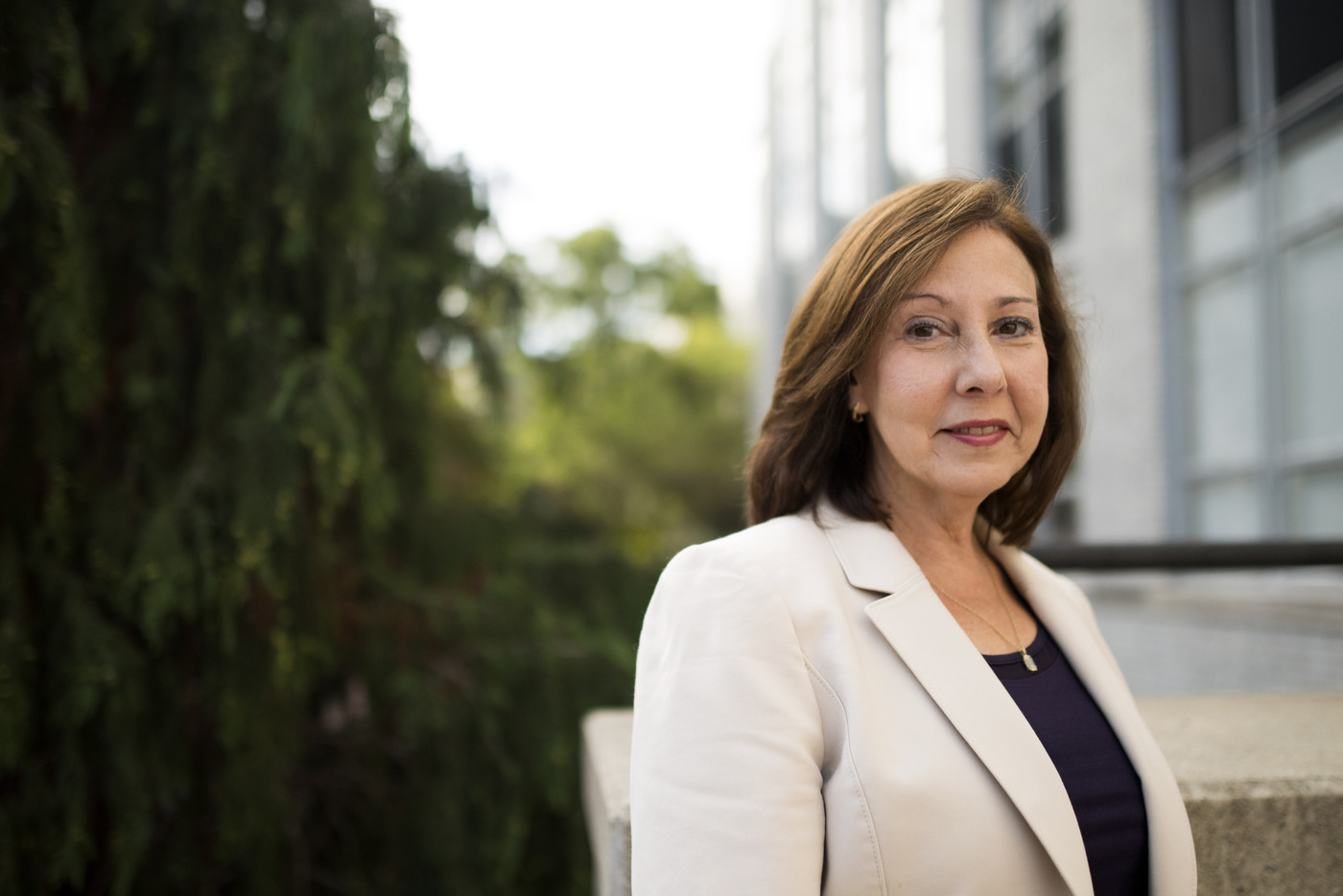How can we celebrate a complicated holiday season during the COVID-19 pandemic?

This holiday season may evoke a complicated set of emotions for many families. How does one account for the sadness and fear that many are feeling during the COVID-19 pandemic—while also celebrating those moments with family that should never be taken for granted?
“There’s a lot of loss right now,” says Laurie Kramer, a Northeastern professor of applied psychology who studies child and family dynamics. “There may be a loss of people—your family members who have been affected by COVID-19. And just the loss of normalcy, and the loss of family traditions in some of the simple things that kids have come to love as part of the holiday season.

Photo by Adam Glanzman/Northeastern University
“It’s important for parents to be real and honest with their children, to acknowledge some of those losses and limitations that they’re experiencing this year,” says Kramer, who also serves as director of the University Honors Program. “And to allow some space for kids to be disappointed and frustrated, and maybe even a little angry about some of those sorts of things. Because it’s important for kids to have an opportunity to express those negative feelings.”
One way to navigate these changes is to steer the perspective in a positive direction, says Kramer.
“Parents can help kids by thinking about what they do have, who is here, who is available,” Kramer says. “What kinds of family traditions can they keep, and what new ones might they be able to invent during this time where they’re celebrating in a smaller way, probably in a quieter way—but maybe in a more intimate and meaningful way? There are some positives that come from having smaller gatherings, and having more time where parents can really focus in on their kids and family relationships, and using this as a time to connect.”
In those cases when distancing and isolation threatens to cast the holidays in a negative light, Kramer encourages families to be mindful of why the measures are necessary, and how their practice makes the world safer for everyone.
But a shift in perspective is not so simple for the hundreds of thousands of families who have suffered the loss of a loved one. Or to those families who have lost sources of income and are struggling financially. Or to those who may fear what comes next as the pandemic threatens to surge to new levels during the holiday season.
These sources of sadness and fear can be especially challenging for children.
“This whole experience is different for teenagers than it is for three or four-year-olds, who are going to be easily distracted and happy with a new activity at home or having more of mom and dad’s attention,” Kramer says. “What a teenager is experiencing is a different kind of loss—of not being able to connect with their peers in the ways they most wish, which is going to have a different meaning for them.
“And then the socioeconomic status of the families is going to affect things as well,” Kramer says. “Do parents have what they consider to be enough to have the type of holiday they want to have with their children, or are they dealing with pressing economic challenges like so many families are facing now?”
Casting the pandemic in historical context may be helpful for enabling children to better understand why this holiday season may feel less bright. Every generation endures its own crisis, notes Kramer.
“For great-grandparents, it might have been the Great Depression and World War II,” Kramer says. “For parents today, it was likely 9/11. The people of each generation of our families have suffered. This could be a time for people to recognize the sacrifices and challenges that elder members of their families have made over time, and maybe to even see them as heroes and models of resilience. This can help the younger members of the family to better understand the importance of the sacrifices they are making now, because of the pandemic.”
The strength of children and their ability to adapt should not be overlooked, Kramer says.
“Kids are very resilient, and I believe that if we help them, they can be resilient at a very early age,” says Kramer, who was founding director of the Family Resiliency Center and The Pampered Chef Family Resiliency Program at the University of Illinois, where she was a professor before moving to Northeastern in 2016. “In general, holidays are great times for parents to foster children’s growth and resilience. And when parents see their kids coping and behaving more adaptively, that helps parents cope better as well.”
The end of this strange and painful year may provide opportunities to take stock of one’s own life.
“I don’t want to ever diminish the pain that people are experiencing right now, because this is truly a horrible thing,” Kramer says of the pandemic. “But if we can take a moment to think about what this time in our lives means to us, and what this tells us about ourselves and about our relationships with the people we care most about, we may benefit.”
“Maybe this type of reflection can inspire us to reset some of our expectations for what the holidays are about,” Kramer adds. “If you say that what’s important about the holidays is that my children feel loved, that we want to do things together and spend time with one another—if you start with that premise, then you can decide what kinds of traditions you want to adopt to help make that happen. You can think about the gifts that you want to give your kids that are going to promote that sense of belonging and connectedness, feeling important and valued, as opposed to, you know, just another toy.
“I think this could be really a great time to come up with new family traditions that might work better for us because they can reinforce our positive feelings for one another and help us remember that we matter,” she says. “That’s how resilience is fostered.”
For media inquiries, please contact Marirose Sartoretto at m.sartoretto@northeastern.edu or 617-373-5718.






